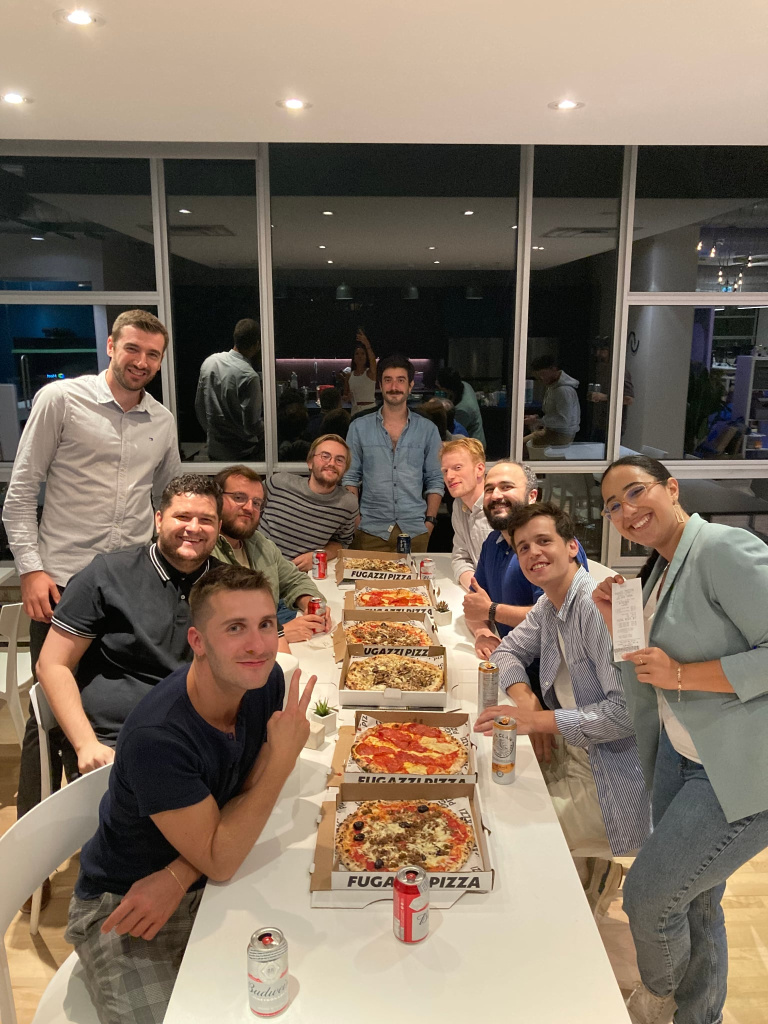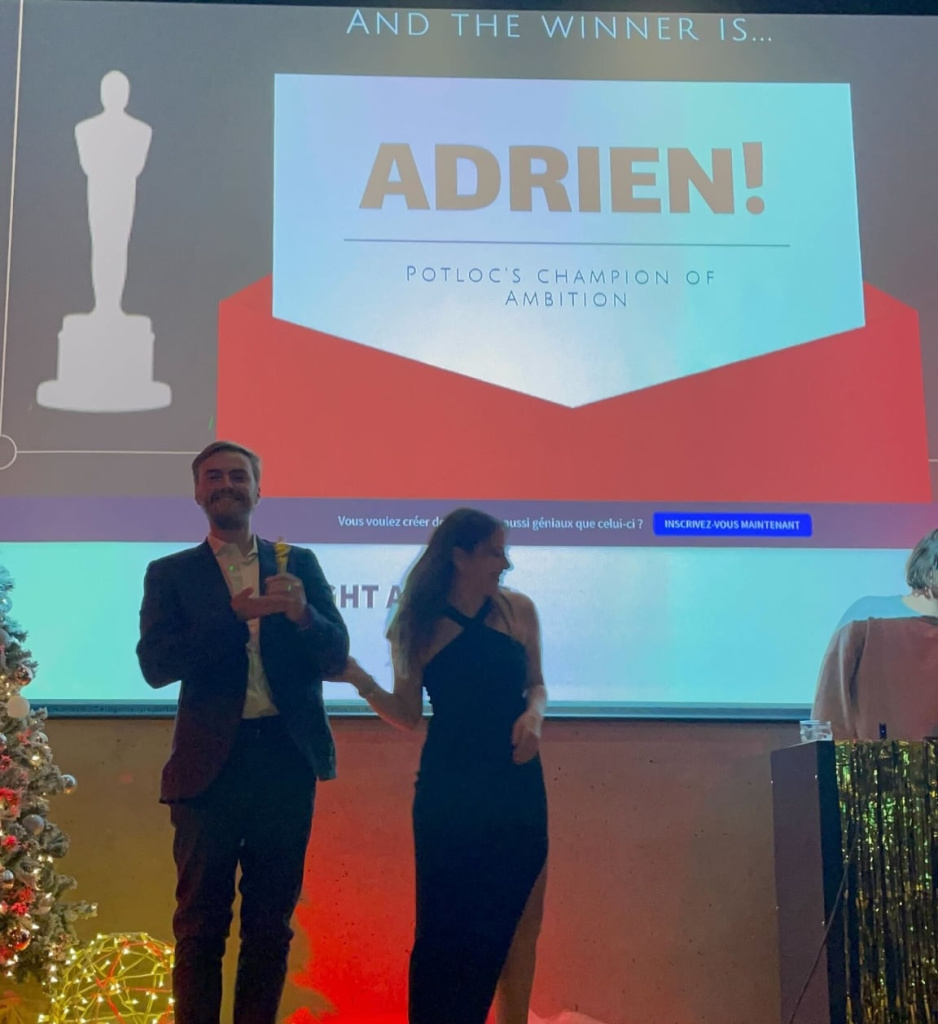30Under30 Honouree: Adrien Vermeirsch

Great to hear from Global 30 Under 30 Honouree, Adrien Vermeirsch, founder of Enlightn, a company rethinking how respondents and surveys connect. By combining AI with a deep understanding of human behaviour, Adrien is on a mission to rebuild trust in data and help the insights industry move toward a more transparent, respondent-centric future.

How did you get into the industry and reach this point?
I got into the industry a bit by chance. During my studies, I did an internship in a small firm in France specializing in geo-marketing. I became genuinely enthusiastic about asking people for their opinions to help businesses make better decisions. It wasn’t abstract at all. One of the studies I worked on helped a well-known bakery franchise decide where to open a new store in my town. A year later, the store was actually there. Seeing such a concrete impact from survey data made me realize how powerful insights can be when done right.

Later, I joined Potloc, a sampling company that was, at the time, pioneering respondent recruitment through social media. Over the years, I held several roles in the research, product and supply teams of the company. This diversity gave me a full-picture view of how research happens in practice, and I developed a fascination for data quality.
After a few years, I realized that most of the challenges I was trying to solve were structural, not tied to one company, but to the way the entire sampling ecosystem works. So, five months ago, I decided to leave my comfortable job to start Enlightn, my own company. The goal is to bring practical innovation to the profiling and targeting process and help the industry rebuild trust in its data.
Why should someone consider a career in market research, data and insights?
Because it’s nothing like what you imagine when you’re studying it! Forget about collecting answers for your group project and chasing a p-value below 0.05. Working in market research means learning from people, developing strong analytical skills and understanding how small pieces of information can influence big decisions.

It’s also one of the least “flashy” parts of marketing, but definitely one of the most strategic. Every brand strategy, product launch or creative campaign starts with a question about people, and we’re the ones helping answer it. If you like curiosity, creativity and logic all mixed together, this field is a perfect fit.

Career paths are rarely without challenges. Can you share a moment from your career when things didn’t go to plan, but the lessons learned remain with you to this day?
I’m actually in one of those moments right now. Entrepreneurship is an emotional rollercoaster. You start with an idea you’re convinced the industry needs, and then reality hits. Clients’ priorities, timing or adoption barriers don’t always align with your vision. There are days when everything feels crystal clear and others when you question everything.
Nevertheless, I’m learning a lot from this period, about humility, patience and the importance of listening. I’ve realized that innovation isn’t just about being “right”. It’s about understanding what people are truly ready for. I’m learning to slow down, to communicate better and to take feedback not as criticism but as direction. It’s a humbling process, but it’s also incredibly rewarding.

What two things should junior researchers focus on as they progress in their careers?
First, curiosity. Stay genuinely curious about everything. How data is collected, why people answer the way they do, how clients use the insights and what tools are changing the industry. Curiosity is what keeps your work interesting and it’s also what makes you grow faster than any job title or training programme ever will. Ask questions even when they sound basic. The best ideas often start with a simple “why.”
Second, develop a niche expertise. Find one topic that really excites you. It can be data quality, questionnaire design, respondent psychology, AI integration, anything, and dig deep into it. Becoming the person who knows that topic better than anyone else around you will spark fascinating conversations both internally and externally. You won’t be just another employee. Your opinion will be valued even if you’re early on in your career. People will come to you for your perspective, and that’s how you build credibility and impact much faster than expected.

Do you have any advice for our sector?
We need to stop only talking about our problems and start building solutions. Everyone agrees that things could be better, that respondents are disengaged, that incentives are low, that surveys are too long, but very few are actively experimenting to fix it.
The current system is not sustainable. We’ve optimized for speed and cost for too long and we’ve lost sight of trust. The trust respondents have in us and the trust clients have in the data they buy. We need to bring back transparency, collaboration and experimentation. That’s where the next big wave of progress will come from.
If we manage to make research more respectful of respondents and more transparent for clients, we’ll not only solve data quality issues, but we’ll also make insights a truly inspiring field again.
Is there anyone who has helped or supported you in your career who you’d like to acknowledge or thank?
Yes, absolutely.
First, Marc Di Gaspero, who always believed in me and who first sparked my passion for data quality. He’s been a real mentor and helped me see that this topic is not just technical, but deeply strategic.
Then, a big thank you to the whole Potloc team. I was lucky to work with incredibly smart, kind and curious people there who gave me the space to explore, test ideas and make mistakes. I wouldn’t have had the confidence to start my own company without that experience.
And, of course, my friends and family, for supporting me through this entrepreneurial leap, believing in Enlightn even when things are uncertain, and reminding me why this mission matters. Their trust keeps me grounded and motivated every day.